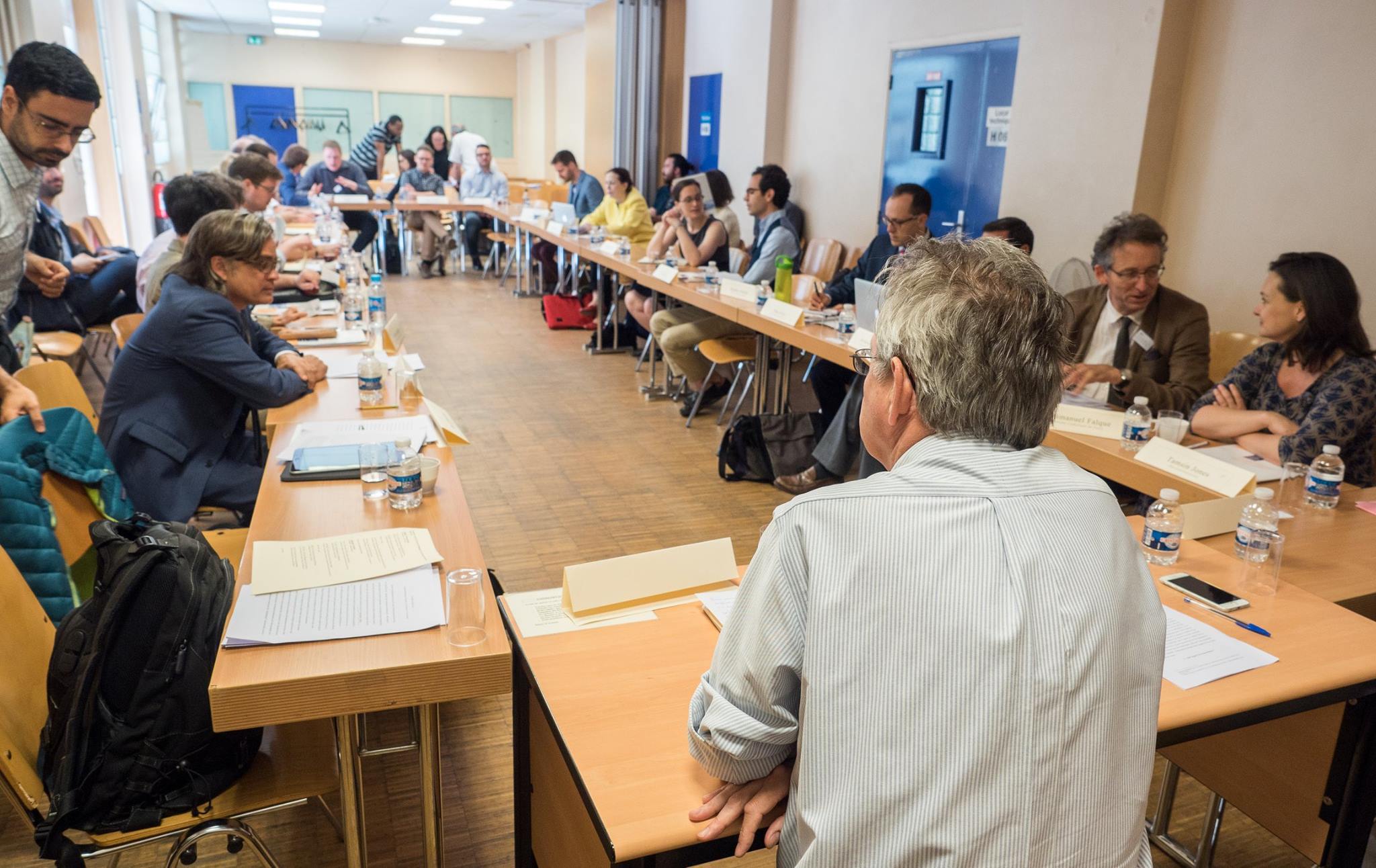
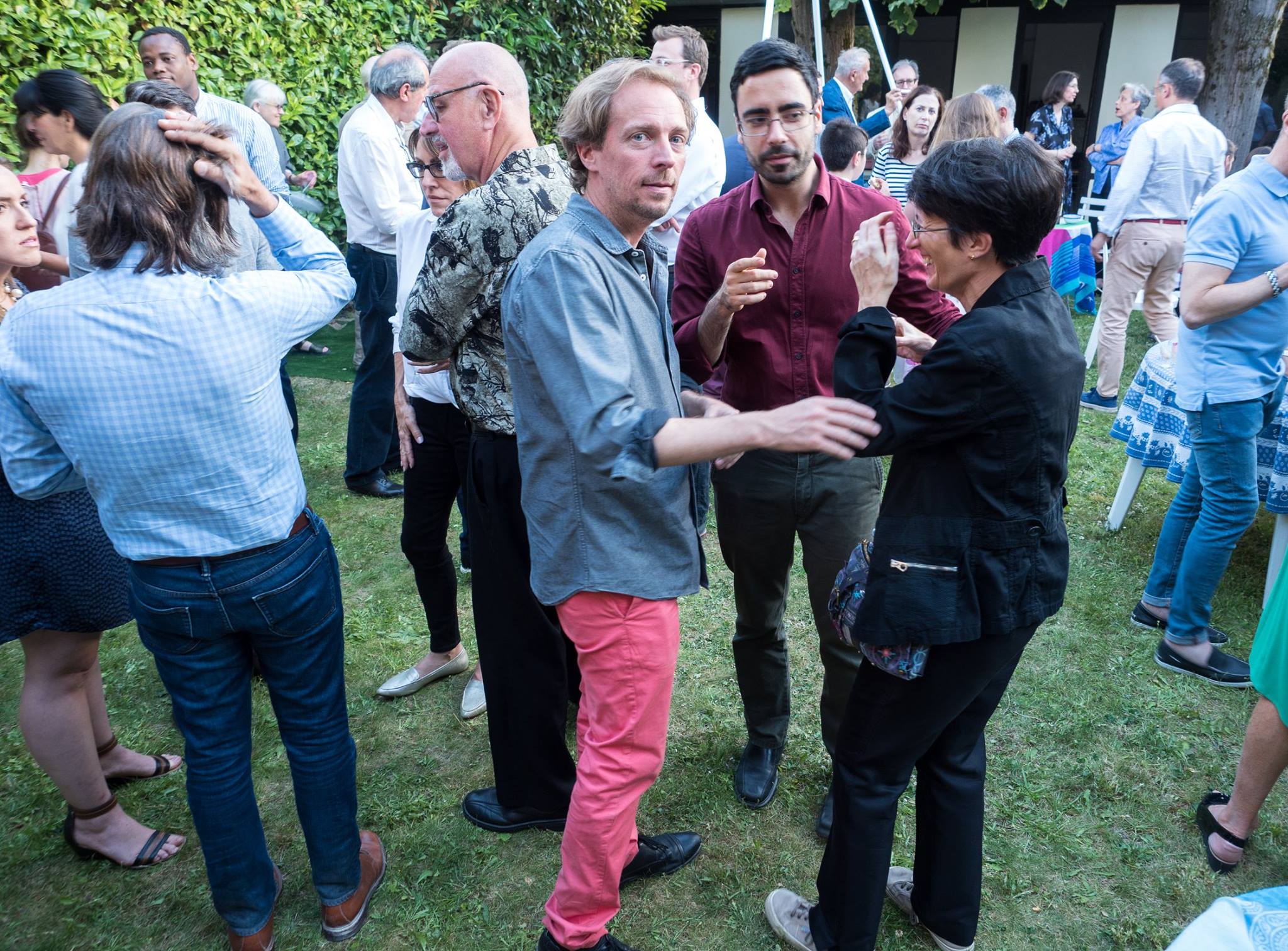
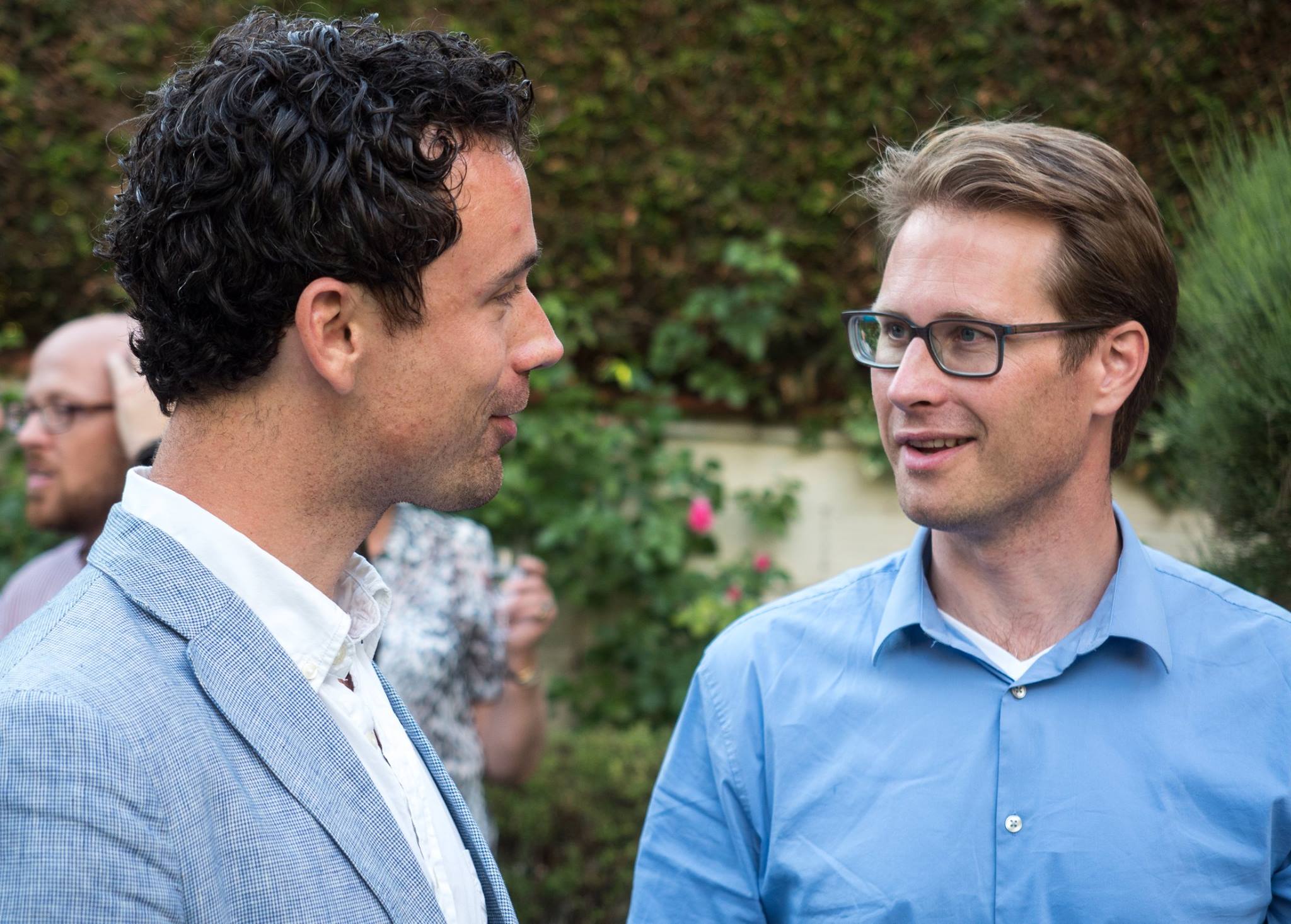
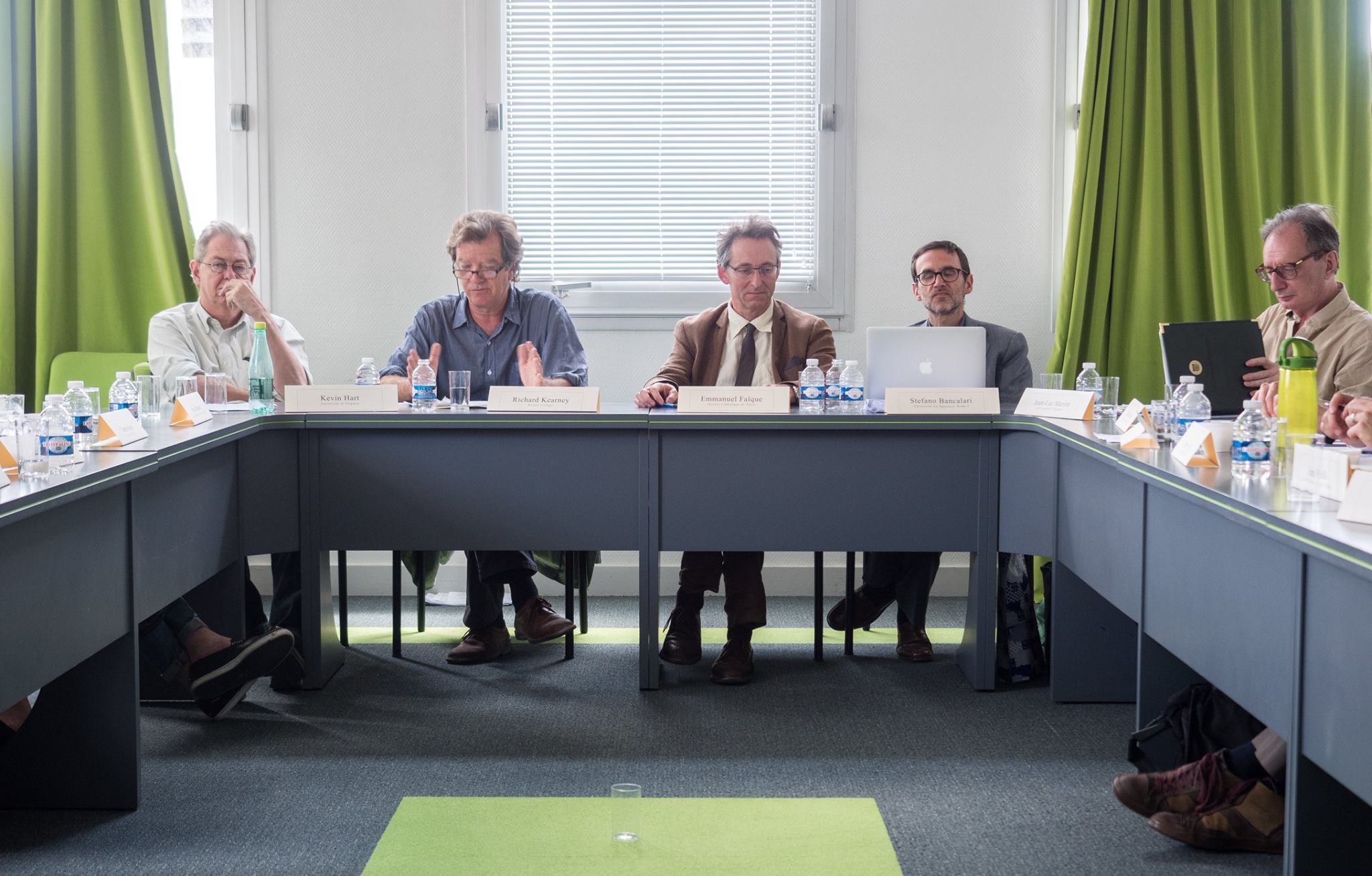
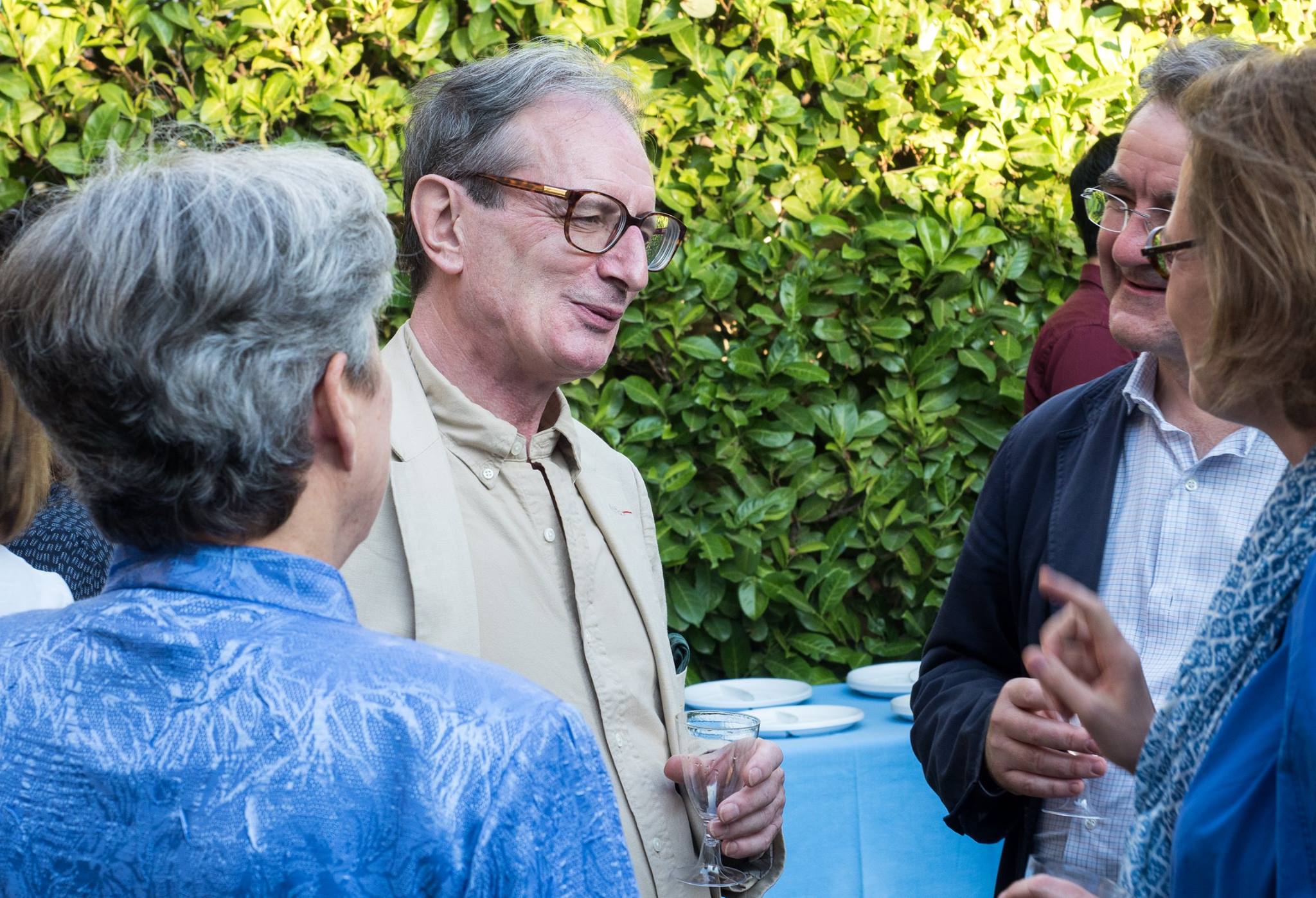
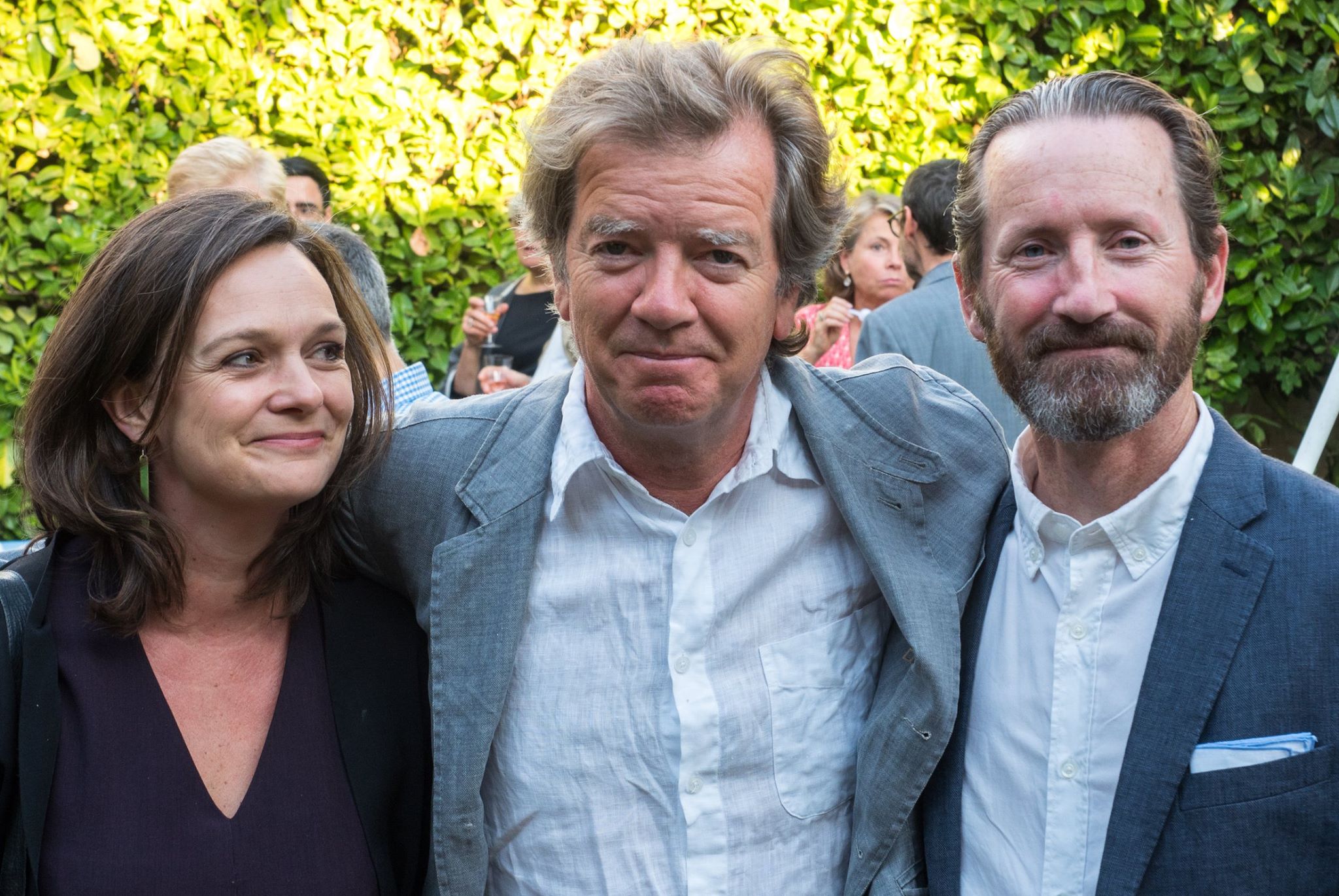
« Immanence et transcendance »
(Institut catholique de Paris, 21-25 Juin 2017)
[Séminaire international des jeunes chercheurs]
Diakrisis Journal published a special issue devoted to the papers presented at this colloque. Click here to view the full issue.
Mercredi 21 Juin 2017 : Transcendance et Révélation
[19 rue d’Assas, Bat. B, 4ème étage, salle des conseils n° 1]
Modérateur : Tom Carlson
13h30 : Accueil (café)
14h : Ouverture : le projet commun de l’INPR (E. Falque)
14h30-15h30: Jean-Luc Marion (de l’Académie française) :
« Penser d’ailleurs »
15h30-16h30 : Kevin Hart (University of Virginia) :
« Contemplation and Fascination »
16h30-16h45 : Pause
16h45-17h30 : Stefano Bancalari (Université La Sapienza, Rome I)
« Les niveaux de la transcendance et la phénoménologie de la religion »
Abstract
In the natural attitude, and in the ordinary language, religion is strictly bound to transcendence. In this paper I ask whether the concept of “transcendence” is legitimate in the phenomenological dimension, which is opened by the methodological operation of reduction to the immanence of transcendental consciousness. By examining how “transcendence” gains increasingly importance in Husserl’s thought, the necessity emerges to distinguish three levels of it: intentional (or horizontal) transcendence, intersubjective transcendence and transcendence as “superposition” (or trans-horizontal transcendence). Such distinction allows to rethink the sense, the possibilities and the limits of phenomenology of religion.
Keywords: Husserl, transcendence, epoché, reduction, intersubjectivity, religion
17h30-18h15 : Robyn Horner (ACU, Melbourne)
« The Problem with Revelation »
18h15-19h : Karl Hefty (Saint Paul University, Ottawa, Canada)
« ‘Donation d’en haut’ : le je peux et ses limites », "Givenness from Above"
Abstract
This article compares the concept of the living body (or “flesh”) in Edmund Husserl’s Ideas II with that of the French phenomenologist Michel Henry. It locates in their descriptions of the I Can a basic difference in the way they understand the roles that impressionality, affectivity, and perception play in the phenomenological method. It then examines Henry’s concept of “auto-affection” and argues that the “strong” and “weak” senses of auto-affection must be understood in terms of what Henry, following Kierkegaard, calls the “dialectic of pathos.” Henry finally distinguishes three degrees of passivity—of sensibility with regard to the world, of flesh with regard to itself, and of flesh with regard to incarnation. In the shift from the second to the third, we see a shift from a concept of givenness to a concept of “givenness from above.” It is here that the article locates the presence of a “transcendence” in Henry’s work, which in turn helps to clarify how he understands the boundary between phenomenology and theology.
Keywords: phenomenology, transcendence, affectivity, body, flesh, givenness, Michel Henry, Edmund Husserl, incarnation, impressionality
19h : Cocktail Buffet
Fête de la musique
Jeudi 22 Juin 2017 [ISP, 3 rue de l’Abbaye, 6ème étage (salle 604) derrière l’Eglise saint Germain des Prés]
Matinée : Radicale immanence
Modérateur : Jeff Kosky
9h-10h : Emmanuel Falque (Institut catholique de Paris)
« Hors phénomène », "The Extra-Phenomenal"
Abstract
Everything is phenomenon, everything is gift, or everything is given. This presupposition of phenomenology, which makes giveness (Gegebenheit) the starting point for phenomenality, is not altogether self-evident. It is not sufficient to look merely at the reverse of the gift (phenomenology of the night), but it is a matter of questioning the impossibility of even giving (the night of phenomenology). Questioning the strategies of the contemporary reappropriations of Kant—radicalization (Heidegger), disproportion (Ricœur), and inversion (Marion)—this text works under a fourth possibility, seldom examined and yet still envisaged by Kant: the “Extra-Phenomenal”, or in other words, the “Chaos”, the “pell-mell”, the “Cinnabar”, or the “melee of sensations”.
Keywords: phenomenology, donation, night, extra-phenomenal, Cinnabar, melee of sensations, madness, trauma, sickness.
10h-10h45 : Brian Becker (Lesley University / Boston College)
« From Psychoanalysis to Metamorphosis: The Lacanian Limits of Zizek’s Theology »
10h45-11h : Pause
11h-11h45 : William Woody (Holy Cross, Massachusetts)
« Overriding Immanence, Originary Dependence: Phenomenologies of the Sick Body »
Abstract
Phenomenologists have given considerable attention to questions of human embodiment and the experience of being enmeshed within the immanent world, most notably in the thought of Merleau-Ponty. This focus on incarnation has, in turn, heavily influenced contemporary philosophy of religion and post-theological turn phenomenology. Yet when speaking of the human experience of embodiment, philosophers run the risk of adopting a normative perspective that universalizes a particular type of human body while excluding or marginalizing different forms as deviant, defective, or deficient. This paper considers numerous critiques against the perceived normativity in Merleau-Ponty’s account of embodiment in the Phenomenology of Perception (feminist, gender studies, post-colonial critiques) before positing disability studies as an even more radical – and privileged – means to dispense with phenomenological normativity. In doing so, this paper attempts to open a space for multiple phenomenological perspectives for experiencing the world as a body, yet without lapsing into an entirely relativistic individualism that precludes phenomenology from making meaningful claims about the experience of human embodiment as such.
Keywords: Merleau-Ponty, Gayle Salamon, Disability Studies, normativity, defective embodiment, handicap, pluralistic perspectives, incarnation
11h45-12h30: Francesco Tommasi (Université La Sapienza, Rome I)
« Transcendance et corps. Pour une théologie de l´en deçà »
Abstract
An apparently paradoxical tendency in contemporary Philosophy of Religion consists in no longer seeking transcendence starting with invisible and immaterial elements, such as the soul, the spirit, or God known to reason. Instead a bridge between philosophy and theology has been singled out in the body. But how can one reach an idea of transcendence starting from the body? In these short reflections, I will try to show how finitude and immanence are the phenomenological meaning of the body. Consciousness itself is finite because it is embodied. So it is not possible to transcend the body. It is only possible to decide how to live out one’s finitude: The body can be oriented to the consumption of the other, by periodic attempts to prolong one’s own life and power. Or, on the contrary, it is possible to let the others eat and consume me. Only others, indeed, can survive me and transcend my finitude.
Keywords: body, transcendence, finitude, phenomenology, philosophy of religion, consumption
Déjeuner Buffet
Après-midi : Auprès du monde
Modérateur : Camille Riquier
14h-15h : Renaud Barbaras (Université Paris I Sorbonne)
« L’intimité au monde »
15h-15h45 : Carla Canullo (Université de Macerata, Italie)
« La spirale infinie. Repenser l'immanence transcendante »
15h45-16h30 : Brian Treanor (Loyola Marymount University, Los Angeles)
« Another World… Inside this one : Wilderness, Eternity, and American Continental Philosophy »
Abstract
Continental philosophy has long been concerned with the question of transcendence, a fact attributable in part to the historical significance of phenomenology and the legacy of debates surrounding transcendental idealism, the epoche, the status of the world and of other people, and, at least for some philosophers, the question of God. The question takes different forms in Husserl, Heidegger, Merleau-Ponty, Sartre, Levinas, Derrida, Marion, and others working in this tradition, but it remains an abiding concern for each of them. Over time the persistence of this issue has formed a body of work that constitutes a kind of center of gravity—one among several—that characterizes continental thinking.
16h30-16h45 : pause
16h45-17h30 : Gregory Floyd (Seton Hall, New Jersey)
« Bursting the Bounds of Reason? Models of Transcendence and Immanence »
Abstract
This paper examines Kant’s metaphor of reason as an island in the Critique of Pure Reasonin order to suggest an unresolved tension at the heart of his critical project, which is addressed in a different way in his Religion within the Bounds of Bare Reason. That tension is between the transcendental circumscription of pure reason and reason’s on persistent pretensions to transcendence. Kant’s model of transcendence is contrasted with two phenomenological models that attempt to articulate the desiderative nature of reason. Yet, precisely on this question of motivation differences between Husserl and Heidegger become clear and instructive. The paper concludes, in view of these differences, with a proposal for conceiving of transcendence in non-topological categories, but instead as the activity of questioning.
Keywords: Transcendence, Heidegger, Husserl, Kant, Phenomenology
17h30-18h15 : Julia Reed (Harvard University)
« Taceo ergo sum: haptic immanence from Aristotle to Derrida »
Abstract
This paper shows the importance of Jean-Luc Nancy’s interpretations of René Descartes in Nancy’s deconstruction of Christianity, especially in the notions of bodily exposition and the impossibility of intactness. I argue that Nancy’s deconstruction of Christianity is prefigured and developed in his readings of the Cartesian ego as an ex-posited and intangible body. I then turn to Jacques Derrida’s critique of Nancy’s deconstruction of Christian intactness: Derrida argues that Nancy appeals to a key Christian trope of the proper or tactful touch and thus affirms a Christian metaphysics of presence. I propose the importance of historicizing the understandings bodily presence and intactness at stake in the difference between Derrida and Nancy, and turn to Descartes’ treatments of transubstantiation as an example. I argue that attending to the seventeenth-century debates concerning Cartesianism’s threat to the material and theological intactness of Eucharistic real presence historically situates the question of deconstructing Christianity. In response to Nancy and Derrida, I suggest that the question is not ifChristianity is or is not intact, but rather how historically specific understandings of the nature and perception of bodies differently conceive bodily presence and intactness.
Keywords: Jean-Luc Nancy, Jacques Derrida, René Descartes, deconstruction, Christianity, immanence, incarnation, haptics, transubstantiation
18h15-19h : Bradley Onishi (Rhodes College, Memphis).
« Au-delà la transcendance du Dasein: à l'intersection du monde et la révélation avant le tournant théologique »
Diner restaurant (intervenants)
Vendredi 23 Juin 2017 [19 rue d’Assas, Bat. B, 4ème étage, salle des conseils n° 1]
Matinée : Herméneutique
Modérateur : Kevin Hart
9h-10h : Jérôme de Gramont (Institut catholique de Paris)
« Marges de la phénoménologie : en dialogue avec E. Lévinas »
10h-10h45 : Scott Davidson (Oklahoma City University)
« A Radical Immanence in Ricoeur's Le Volontaire et L'involontaire »
10h45-11h : Pause
11h-11h45 : Gonçalo Marcelo (Université de Coimbra / Université catholique de Porto)
« Immanence et transcendance dans l'herméneutique de P. Ricoeur »
11h45-12h 30 : Tamsin Jones (Harvard University)
« Responsible Subjects: On the Ability to Respond to Transcendence »
Abstract
This essay reflects on the constitution of subjectivity in relation to transcendence specifically through an analysis of responsibility. The openness to re-thinking transcendence in continental philosophy led to a corollary re-thinking of subjectivity as constituted in response to otherness or transcendence, in such a way, however, that emphasized the utter passivity of the subject. This essay attempts to forge a path forward for thinking about the constitution of responsible subjectivity, beyond the ruinous alternative of either the subjugating or subjugated self, to a subject able to respond to transcendence in such a way that does not threaten the inviolability of transcendence. Deliberating with, and beyond, Jean Wahl, Emmanuel Levinas, and Kelly Oliver, this essay argues that the various accounts of responsibility found in Jewish and Christian scriptures can provide an articulation of subjectivity as constituted by its relation to transcendence, in which transcendence is understood as both a movement and an end—a movement undertaken by a self towards that which remains ever other.
Keywords: Emmanuel Levinas, Jean Wahl, Kelly Oliver, transcendence, responsibility, subjectivity, witness, trauma, phenomenology, theology
Déjeuner chez le Recteur (intervenants)
Après-midi : Généalogie
Modérateur : Stefano Bancalari
14h-15h : Tom Carlson (UCSB, California, Santa Barbara).
« Immanence et apophase: au cœur de la pensée chez Emerson et Nietzsche »
15h-15h45 : David Newheiser (ACU, Melbourne)
« Self-critique, Politics, and the Sacred »
15h45-16h30 : Adam Wells (Emory and Henry College, Virginia)
« Between Transcendence and Immanence: Husserl and Ibn 'Arabi on the Imagination »
Abstract
The trajectory of Edmund Husserl’s thought on “phantasy” points toward a de-emphasis of both perception and presence as tools for understanding the imagination. I will argue, however, that Husserl’s treatment of “phantasy” is ultimately deficient inasmuch as it focuses on the epistemological function of the imagination, while neglecting its ontological significance. As a corrective, I will develop an ontological concept of imagination by drawing on the work of the 12th century Sufi philosopher, Ibn al-‘Arabi. It will be shown that the imagination is a constitutive feature of both the world (as the horizon of possibility) and all knowledge of the world (as an intentional relationship); it is both ontologically and epistemologically essential.
Keywords: Imagination, Edmund Husserl, Phantasy, Phenomenology, Ibn al-‘Arabi
16h30-16h45 : pause
16h45-17h30 : Tarek Dika (University of Notre Dame)
« Heidegger on the ‘Finitude’ of Being »
17h30-18h15 : Jeff Kosky (Washington and Lee University)
« Transcendence of the Everyday : Henry David Thoreau »
18h15-19h : Peter Fritz (Holy Cross, Massachusetts)
« Alethic and Apocalyptic Logics in Karl Rahner »
Soirée libre
Samedi 24 Juin : Poétique et Liturgie [19 rue d’Assas, Bat. B, 4ème étage, salle des conseils n° 1]
Modératrice : Carla Canullo
9h-9h45 : Markus Kneer (Padenborn, Allemagne)
Abstract
What can literary interfaith dialogues teach us about real interfaith dialogue? Some would say: Nothing, they are only texts and they omit central elements of a real dialogue like the corporal presence of the speakers, their gestures and facial expressions, the orality of the discourses, the inter-subjectivity. Even if this argument is to a certain extent justifiable, it would be interesting to try another kind of reading of the texts, a phenomenological reading which tries to let appear the persons in dialogue, and perhaps even more: the appearance of the divine reality beyond the human concepts which are used in the controversy and bound to a certain theological system. By this phenomenological reading the reader himself becomes involved in the dialogue and bears a responsibility for his development.
Keywords: Theory of dialogue, Interfaith dialogue, Christian-Muslim Encounter, Phenomenology, Inter-subjectivity, Otherness, Transcendence, Ethics, Theology
9h45-10h30 : Bruce Benson (Loyola Marymount University, Los Angeles)
« The Liturgical Basis of Religion »
10h30-11h15 : Christina Gschwandtner (Fordham University, NY)
« L'invisible dans le visible : Phénoménologie et liturgie »
11h15-11h30 : pause
11h30-12h30 : Richard Kearney (Boston College)
« Théopoétique de la Trinité »
12h30-13h30 : Clôture - débat (avenir de l’INPR)
13h30 : Cocktail - Buffet
Après-midi libre
19h30 : Diner-buffet à Meudon
Famille Falque (parents) : 3, rue Bussière, 92190 Meudon Bellevue
[10mn de Montparnasse en train : gare Meudon Bellevue direction Versailles Chantiers
(puis 10mn à pieds)]
Dimanche 25 Juin :
Visite du château de Versailles (messe, pique-nique, visite du château et du parc)
Participants (sur invitation [doctorants ou jeunes docteurs]) :
Kyle Kavanaugh (ICP / Boston College), Stephanie Rumpza (Boston College), Luke McCraken (Washington and Lee University), Hannah Venable (University of Dallas), Taylor Knight (Oxford University), Murray Littlejohn (Boston College), Jacob Benjamin (Université de Leuven), Romilo Knezevitz (Oxford University), David Goodmann (Boston College) William Connelly (Emory University)
Joao Costa (Université de Porto), Manuel Porcel (Université pontificale de Salamanque), Vincent Piro (Trento), Chiara Pesaresi (Macerata), Francesca Peruzzoti (Modene), Lorenza Bottacin Cantoni (Padoue), Mikko Sammalkivi (Helsinki), Pablo Irizar (KU Leuven / Angelicum Rome)
John Manoussakis (Holy Cross, Massachusetts) [« Of the Chiasmus of Flesh and Sense in Nicaea II »] : texte de la conférence joint au dossier.
Avec des doctorants et professeurs de l’Institut catholique de Paris.